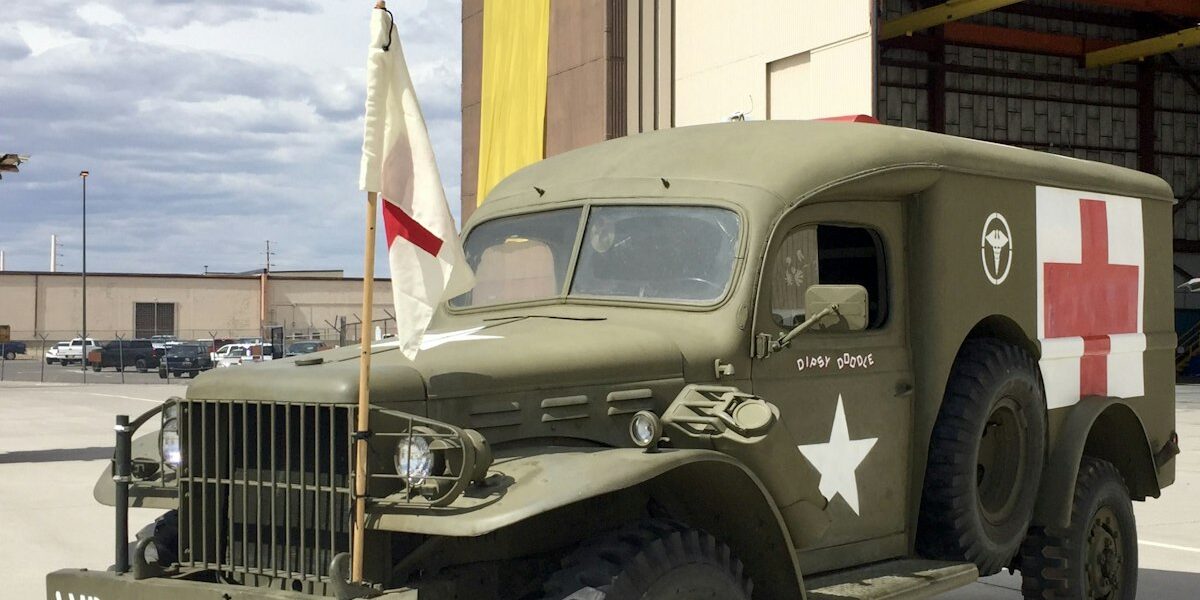Educational Resources for Veterans
Transitioning from military to civilian life can be challenging. One of the most significant hurdles is pursuing further education. Fortunately, there are numerous resources available that provide support.
GI Bill

The GI Bill is perhaps the most well-known resource. It offers a range of benefits to veterans and their families. The Post-9/11 GI Bill covers full tuition and fees for in-state public institutions. It also provides a monthly housing allowance and an annual stipend for books and supplies.
Eligibility depends on service length. Veterans with at least 90 days of aggregate service after September 10, 2001 qualify. Those with service-connected disabilities may be eligible as well. The Yellow Ribbon Program supplements the GI Bill for those attending private schools. This program has schools contribute additional funds, matched by the Department of Veterans Affairs (VA), to cover costs not covered by the GI Bill.
VA Education Service
The VA Education Service offers various programs beyond the GI Bill. These include the Survivors’ and Dependents’ Educational Assistance (DEA) program, providing benefits to dependents of veterans who died or are permanently disabled due to service.
The VA also offers vocational and technical training programs. The VET TEC program supports training in high-demand fields like information technology. It covers tuition, housing, and additional certification costs. Participants can complete these programs in less time than traditional degrees.
State-Specific Benefits
Each state provides its own benefits to veterans. State departments of veterans affairs (DVA) offer tuition waivers or discounts at public universities. For example, Texas offers the Hazlewood Act, which exempts veterans from tuition fees for up to 150 credit hours.
States also provide financial aid to dependents of veterans. California’s Fee Waiver Program grants fee exemptions to children and spouses of veterans who are disabled or deceased due to service. Researching state-specific benefits is essential for maximizing educational opportunities.
Scholarships and Grants
Many scholarships and grants are available exclusively to veterans. Private organizations and foundations often offer these. The Pat Tillman Foundation provides scholarships through the Tillman Scholars program. This program supports veterans, active servicemembers, and their families pursuing higher education.
The AMVETS National Scholarship Program offers varying scholarships for veterans, active military members, and their dependents. Additionally, numerous institutions offer internal scholarships to veterans, further reducing financial burdens.
Military-Friendly Schools
Several universities and colleges stand out as military-friendly. These institutions offer tailored services for veterans, including dedicated veteran centers, counseling services, and academic advising.
Syracuse University’s Institute for Veterans and Military Families is a prime example. It provides various programs supporting veterans’ educational and employment journeys. The University of Southern California also has a long history of accommodating veterans through their USC Veterans Resource Center.
Online Learning Platforms
Online learning platforms have streamlined education for veterans. Platforms like Coursera, edX, and Udemy offer courses from top universities. Veterans can learn at their own pace, fitting education around other commitments.
Some platforms offer free courses or discounts to veterans. Missouri’s Columbia College offers in-residence and online degrees at discounted rates for veterans. The flexibility of online learning ensures that veterans can balance education with their unique lifestyles.
Vocational Rehabilitation and Employment
The VR&E program, also known as Chapter 31, assists disabled veterans. It provides services like career counseling, job training, and educational assistance. The ultimate aim is to help veterans secure stable employment.
VR&E services cover tuition, fees, and supplies. It also offers mentorship and internships to ease the transition into new careers. Veterans with service-connected disabilities should consider VR&E for comprehensive support.
Student Veterans of America
SVA is a nonprofit focused on fostering academic success among student veterans. They provide resources, scholarships, and advocacy for veterans in academia. SVA chapters on campuses create communities where veterans can share experiences and support each other.
SVA also hosts an annual national conference. This event connects veterans with potential employers and academic institutions. Networking opportunities like these are invaluable for student veterans.
Federal Financial Aid
Veterans are eligible for the same federal financial aid programs as civilians. Filling out the Free Application for Federal Student Aid (FAFSA) is the first step. Federal Pell Grants and Federal Supplemental Educational Opportunity Grants (FSEOG) can provide additional financial support.
Federal Perkins Loans and Direct Subsidized Loans offer lower interest rates. These options present another avenue to finance education alongside veteran-specific benefits.
Free College Courses and Certification Programs
Many institutions and organizations offer free college courses and certifications. These programs allow veterans to gain skills without financial investment. Massive Open Online Courses (MOOCs) provide access to courses from universities like MIT and Harvard.
Certification programs from Google, Amazon Web Services, and Microsoft are also available. These certifications enhance job prospects, making veterans more competitive in the job market.
Mentorship Programs
Mentorship programs can significantly impact educational and career success. Organizations like American Corporate Partners (ACP) connect veterans with mentors in their fields of interest. These mentors provide guidance and assist in navigating educational and career pathways.
Veterans Upward Bound (VUB) programs offer mentorship and support services aimed at improving academic skills. VUB helps veterans transition to college life and succeed in their academic pursuits.
Career Services and Job Placement
Educational institutions often have career services dedicated to veterans. These services help with resume writing, interview preparation, and job placement. Veterans can access job fairs exclusive to former servicemembers.
Programs like VETS2INDUSTRY provide networking events and job placement services. These initiatives ensure veterans can apply their education effectively in the civilian workforce.
Continuing Education and Professional Development
Beyond degree programs, continuing education remains crucial. Professional development courses help veterans stay current in their fields. Workshops, seminars, and conferences offer opportunities to learn and grow.
Veterans can take advantage of lifelong learning programs and certifications to maintain relevancy. This approach ensures career advancement and skill enhancement.
Counseling and Psychological Services
The transition to civilian life can bring psychological challenges. Educational institutions often provide counseling and psychological services tailored to veterans. These services offer mental health support, helping veterans manage stress and anxiety.
The VA also provides free mental health care to veterans. Accessing these resources ensures that veterans can focus on their education while managing their mental health effectively.
Women Veterans
Women veterans often face unique challenges. Specific programs cater to their needs, offering support and advocacy. The Center for Women Veterans (CWV) within the VA focuses on issues affecting women veterans. These programs provide educational resources, healthcare, and employment assistance.
Women Veterans Network (WoVeN) creates peer support groups. These groups help women veterans connect, share experiences, and support each other. WoVeN’s approach creates a nurturing environment for women pursuing education and career goals.
Veterans Affairs Libraries and Research
VA libraries offer extensive resources for academic research. These libraries provide access to journals, books, and databases. Veterans can conduct research essential for their academic progress using these resources.
Veterans also have opportunities to present their research at conferences. Engaging in research enhances learning and expands knowledge in various academic fields.
Technology Resources
Access to technology is vital for education. Many institutions provide veterans with laptops, software, and other technological resources. Programs like Tech For Troops provide refurbished computers to veterans in need.
The use of technology enhances the learning experience, enabling veterans to complete assignments and access educational materials efficiently.
Fitness and Wellness Programs
Maintaining physical health is crucial for educational success. Fitness and wellness programs targeted at veterans promote physical well-being. Many educational institutions offer gym memberships, fitness classes, and recreational activities.
Participation in these programs helps veterans manage stress and stay healthy, which is essential for academic success.
Study Abroad Programs
Veterans also have the opportunity to study abroad. Many universities offer study abroad programs with financial aid options for veterans. These programs provide unique learning experiences and cultural exposure.
Studying abroad can enrich a veteran’s education, offering perspectives and skills beneficial for personal and professional growth.
Entrepreneurial Programs for Veterans
Veterans interested in entrepreneurship have access to various programs. Institutes like Bunker Labs provide training and resources for veteran entrepreneurs. These programs teach business skills and offer mentorship from successful entrepreneurs.
The SBA’s Boots to Business program offers workshops and courses on starting and growing a business. These initiatives empower veterans to create their own businesses and achieve financial independence.
Community Colleges for Veterans
Community colleges are a valuable option for veterans. They offer affordable tuition and flexible schedules. Many community colleges also have veteran centers providing tailored services.
Programs like the California Community Colleges Veterans Resource Center Network provide comprehensive support, making community colleges an excellent starting point for higher education.
Adult Education and Continuing Education Programs
Adult education programs offer flexibility and accessibility for veterans. Programs range from high school diploma completion to industry-specific certifications. These programs accommodate veterans’ schedules and provide a pathway to further education.
Continuing education options ensure that veterans can pursue lifelong learning. This approach allows for skill development and career advancement.
Social Support Networks
Building social support networks is crucial for success. Social support systems provide emotional and practical assistance. Organizations like the Veteran Student Association offer networking and support opportunities on campus.
Online communities also offer support and resources. Platforms like RallyPoint connect veterans with peers, promoting a network of mutual assistance and shared experiences.
Tutoring and Academic Assistance
Tutoring services help veterans excel academically. Many educational institutions offer tutoring for various subjects. Veterans can access one-on-one or group tutoring sessions tailored to their needs.
Academic assistance centers also provide writing and study skills workshops. These resources ensure academic success and improve confidence among veteran students.
Housing Assistance
Finding housing can be a challenge. Educational institutions often provide housing assistance to veterans. On-campus housing and subsidized off-campus housing options are available.
Programs like the HUD-VASH voucher program offer housing support for veterans facing homelessness. These initiatives ensure stable housing, allowing veterans to focus on their education.
Financial Literacy Programs
Financial literacy is essential for managing education expenses. Financial literacy programs teach budgeting, saving, and managing debt. Many organizations, including the VA, offer workshops and resources on financial management.
Understanding financial principles ensures veterans can effectively manage their education funding.
Legal Assistance
Legal issues can disrupt education. Many universities offer legal assistance services to veterans. These services help with issues like housing disputes, benefits claims, and other legal matters.
Organizations like the American Bar Association provide pro bono legal assistance to veterans. Accessing legal resources ensures veterans can resolve issues and stay focused on their studies.
“`


